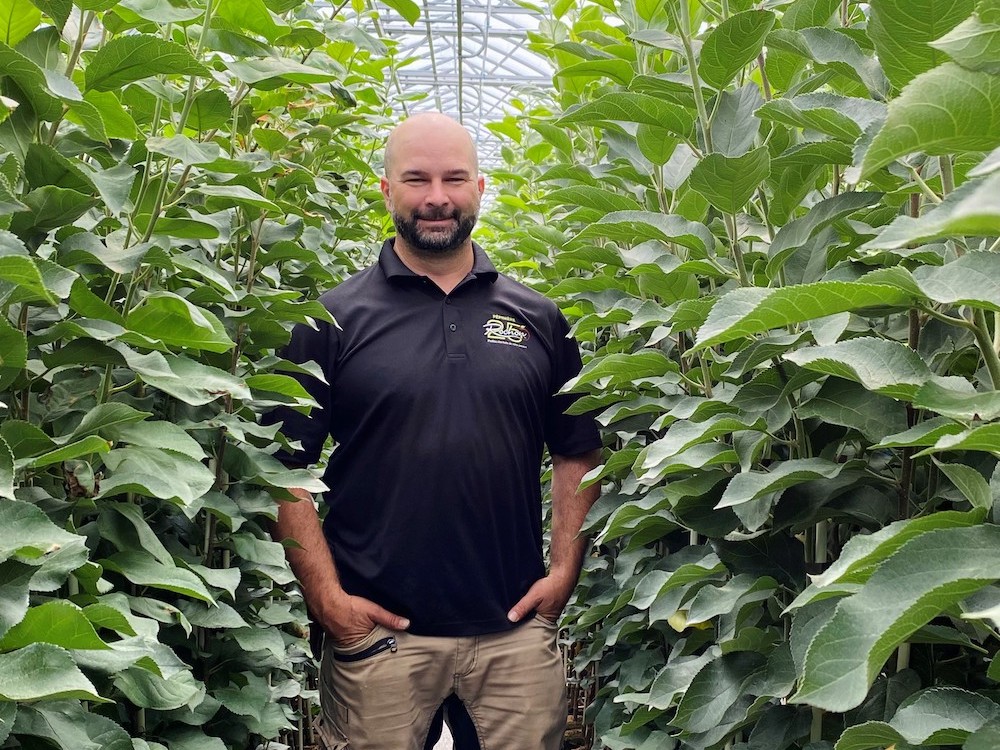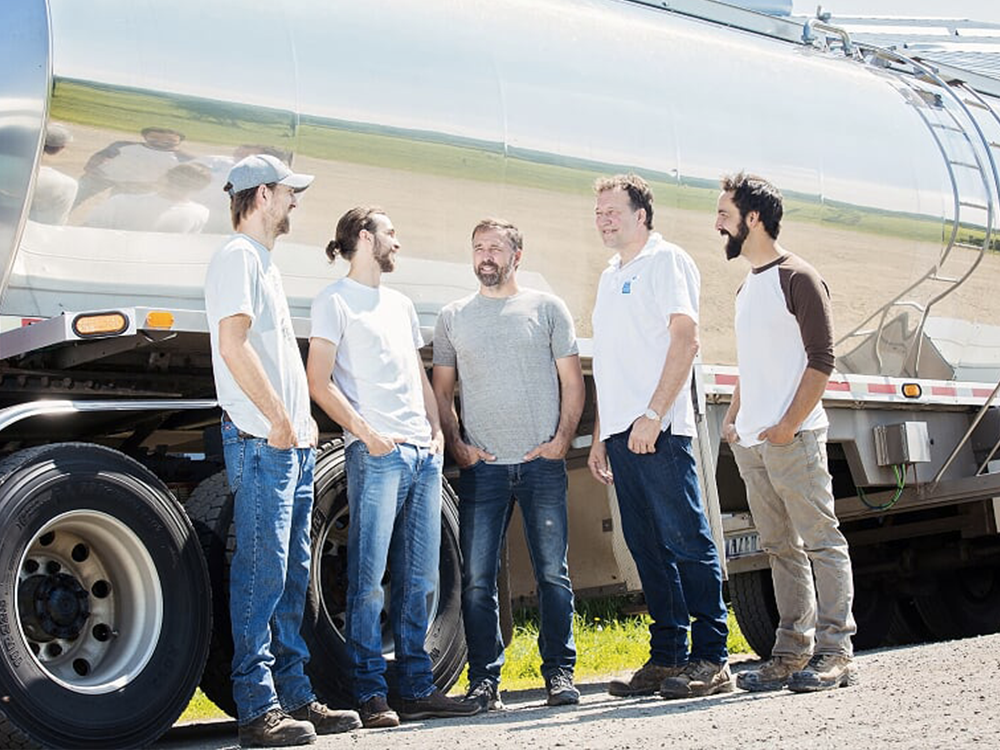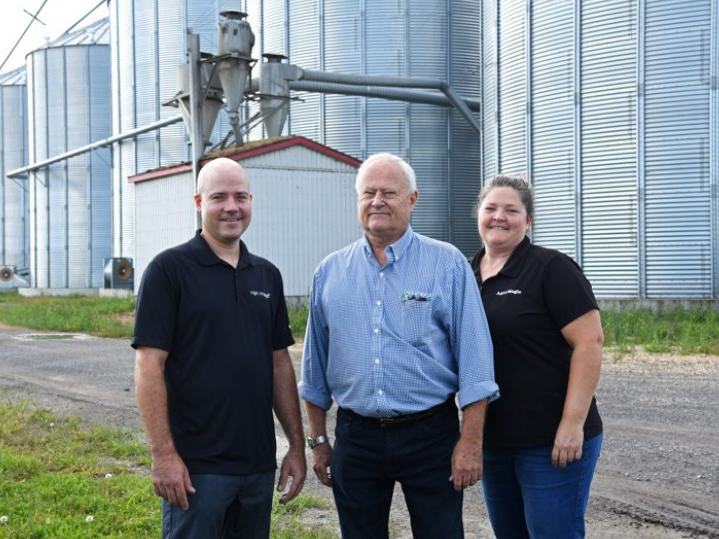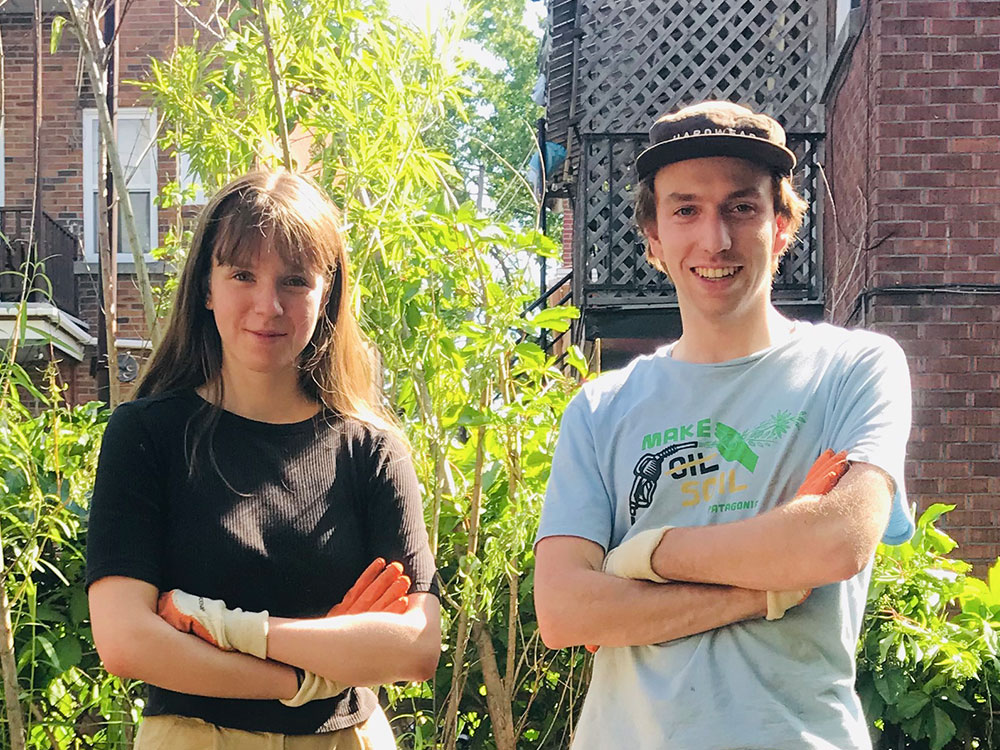
Pépinière Rochon: Cultivating of Apple Trees in Greenhouses to Innovate
Jean-Marc Rochon’s Story
Jean-Marc is in charge of the nursery, while his brother Vincent takes care of the family orchard. Marcel, the patriarch and founder of the company, is now retired, but he still gives his sons precious advice.
THE APPLE DOESN'T FALL FAR FROM THE TREE
Apples run in the Rochon family. Robert, Jean-Marc's grandfather, obtained his first nurseryman's license in 1944. At the time, it was customary for the family land to go to the eldest son. Marcel, not being the oldest, but wanting to follow in his father's footsteps, saved enough money to buy an orchard in 1988. Jean-Marc was then eight years old, which meant he would grow up surrounded by apple trees.
In 1996, Marcel founded the nursery to diversify his business and produce on a larger scale. That same year, Jean-Marc enrolled at the Institut de technologie agroalimentaire du Québec (ITA) in Saint-Hyacinthe. The nursery project appealed to him, so much so that he spent his first summer internship in a nursery in Saint-Paul-D'Abbotsford. His second internship was spent in a European nursery, which confirmed his career choice. "Being responsible for all the steps, from the production of the apple tree to its sale, is what attracted me to the nursery," explained Jean-Marc. After graduating from the ITA in 2000, he returned to work at Pépinière Rochon. "My father saw my interest in the nursery so he put me in charge.” His younger brother Vincent joined the company a few years later to take care of the orchard. Together, they ensure the succession of the family business.
THE MULTIPLICATION OF APPLE TREES: WHAT IS THAT ALL ABOUT?
Very few people know this, but the majority of trees used for apple picking in the fall do not come from a seed planted in the ground. First, because the seed of a Honeycrisp apple doesn't guarantee that the tree will be the same variety. "We know the mother since we know which apple the seed came from, but we don't know who the father is. We don't know where the pollen came from.” Secondly, because it’s much quicker to start from a bud and graft it onto a rootstock, as it’s called in the business. A rootstock is a decapitated plant with a root system on which a bud is implanted to accelerate the growth process.
The type of rootstock also determines the size of the fruit tree. "In my grandparents' time, they used to fill a hectare with about 150 apple trees. Today, with dwarf rootstocks, we can go up to 3,000 apple trees in the same hectare," explained Jean-Marc. The standard apple tree of the time was much bigger, which delayed its yield.
"There is no business plan that can sustain profitability in 21 years! (laughs) That's why we're turning to dwarf apple trees, which are optimized for yield. We start to have interesting harvests in the fourth year.”
One thing is certain, apple growing is a long-term endeavor. In 2022, Jean-Marc has started planning the production of trees that will be sold in 2025.
APPLE VARIETIES FOR ALL TASTES
Jean-Marc multiplies apple trees of several dozen varieties according to demand. His clientele is divided into three categories: orchards that supply grocery chains, those that specialize in agritourism and those that produce cider. The first category is intertwined with consumer demand.
"The growers I work with don't want to deviate too much from what is known and popular. There is a craze for sweeter, crisper apples. Looks are important too. The Honeycrisp variety has been at the top of the list for years," said Jean-Marc.
"With apple picking and agritourism producers, it's a different ball game. They want to differentiate themselves from the grocery chains and offer unique varieties," he added. And what about the third category? "There's a craze around cider. Producers are looking for specific tastes, aromas, acidity or tannins to make a blend that will set their cider apart from others. Cider production is very cool! These are varieties that you can't find anywhere else," concluded Jean-Marc.
CULTIVATING IN GREENHOUSES TO ENSURE THE FUTURE OF THE NURSERY
Recently, Jean-Marc wanted to add some variety to his production methods by building his first 14,000-square-foot greenhouse. "Producing apple trees in the field requires a lot from the ground. I can't go back to the same production site for ten years," he explained. Also, the ups and downs of the weather are increasingly difficult for fruit tree production, which is vulnerable during the winter. "The most popular varieties, such as the Gala apple from New Zealand, are not well adapted to the Quebec climate.
Finally, fire blight, which is gaining ground year after year, can decimate an apple tree population in the blink of an eye. Part of the answer to this challenge lies in the use of new fire blight resistant and/or tolerant rootstocks. These new rootstocks, which are very temperamental in the field, multiply more successfully and easily in a greenhouse.
For all these reasons, Jean-Marc developed a greenhouse project in 2020. The timing was right, as the Quebec government had just announced the creation of a program to finance this type of project and thus encourage food autonomy in the province. The greenhouse was built in 2021, making 2022 its first year of production. Jean-Marc now needs to test the preservation of the apple trees during the winter. "I'm going to have something very interesting to offer. A tree usually takes two years to grow in the field and I’ll be able to get similar results in a single season."
THE COMPANY IN NUMBERS
4 employees, which turn to 10 in the spring and in the fall
14,000-square-foot greenhouse, plus two and a half hectares of field
75,000 trees produced in 2021
5 to 7% increase in sales turnover per year
LEARN MORE
Visit Pépinière Rochon's website to learn more about apple tree propagation for apple growers.


